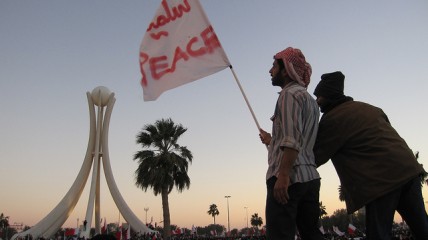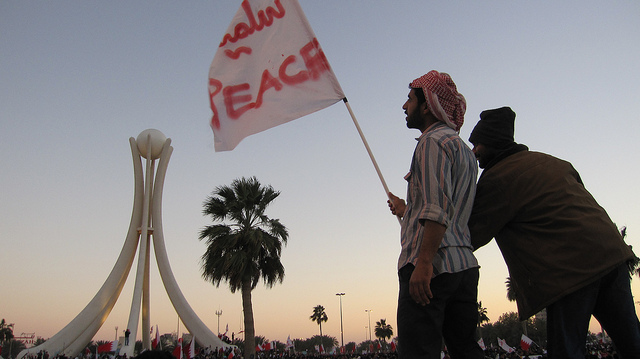
Peace activist in Bahrain. Photograph courtesy of Al Jazeera
The image the Bahraini government promotes to the world is one of a moderate and reforming regime that is open to trade and tourism, as demonstrated by its hosting of the F1 Grand Prix last weekend. However, beneath that veneer is a country where reports of government crackdowns and arrests of children are common, and a place where the UN special rapporteur on torture is not welcome.
The Bahraini Center for Human Rights describes a number of house raids and arrests across the small country on the day of the Grand Prix, with 96 arrests during the period 18-21 April, including 12 children. They also produced information on protesters receiving a wide variety of injuries including pellet wounds, and being struck directly with tear gas cannisters.
In order to hide this action from the world, the government also deported several foreign journalists who were covering the protests in the villages including a British team from ITV.
By blocking the visit by Juan Mendez UN special rapporteur on torture “until further notice”, the government are preventing discovery of the facts surrounding the continual reports of torture and abuses, damaging their own credibility on the world stage. Brian Dooley of Human Rights First characterize this move as:
“A huge blow to the credibility of Bahrain’s reform process”
The Bahraini government’s decision to prevent a UN investogation into human rights abuses comes after the US State Department published its human rights report last week, which counts a number of abuses in the country, stating:
“The [Bahraini] government limited freedom of speech and press through active prosecution of individuals under libel, slander, and national security laws; firing or attacking civilian and professional journalists; and proposing legislation to limit speech in print and social media”




